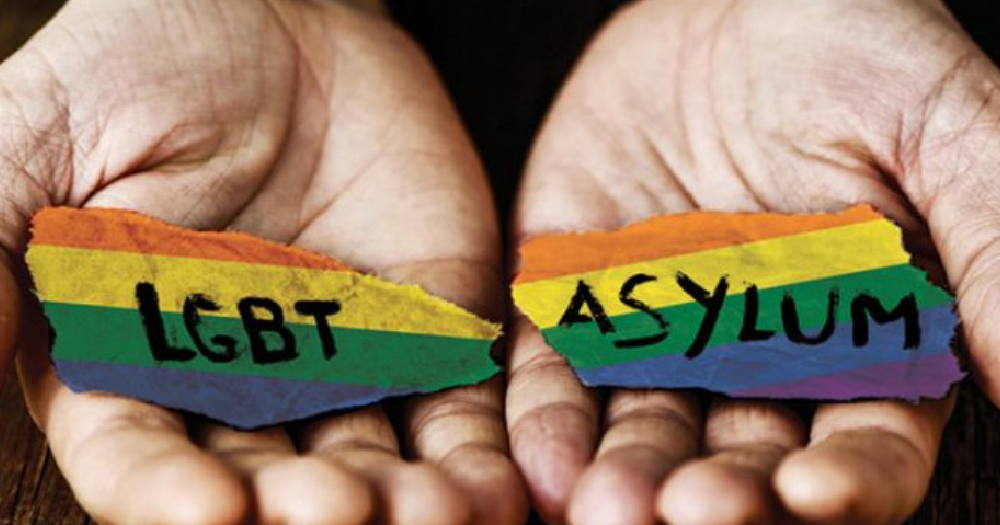A two-day LGBTQ+ Asylum Seekers and Refugees Conference taking place on April 9 and 10 will platform the voices of “activists, artists, academics, and, really importantly, those affected by the issues themselves.”
EROSS (Expressions, Research, Orientations: Sexuality Studies) at Dublin City University are hosting. One of the organisers, doctoral scholar and former director of BeLonG To, David Carroll, explained how the impetus for the event came about – during lockdown one, as everyone was coming to terms with the effects of Covid-19, one voice that was particularly silent was that of LGBTQ+ asylum seekers and refugees, who, “due to the intersectional nature of the issues they face are often a pretty invisible group anyway.”
The conference is academic-focused, but the organisers want to ensure it is also practical and broadened out to include the community.
While LGBTQ+ asylum seekers and refugees are in no way a homogenous group, people with this lived experienced are vulnerable to a wide range of adversities. The “notorious Direct Provision system” and the issue of displacement migration present many challenges in and of themselves. However, these can be exasperated “when you take on the intersection of sexual orientation or gender identity,” David explained.
“There might be issues in the particular accommodation that you’ve been assigned. You might be far away from any LGBT services or supports. Often, I found that LGBT asylum seekers and refugees can be unaware of their rights, in terms of sexual orientation, or gender identity in Ireland… I think then there are also some issues around integration into the LGBT community.”
“Of course, like all people, LGBT asylum seekers are not just defined by their asylum status, or their sexual orientation or gender identity, they have all of the other things that go on for human beings to contend with as well.”
Hosted by EROSS @DCU, the Dublin LGBTQI+ Refugees/Asylum Seekers conference will take place online on Friday April 9 & Saturday April 10 2021. Register now: https://t.co/ngJ0aVjTjX pic.twitter.com/eKxCX4jIGM
— Faculty of Humanities & Social Sciences @ DCU (@HumanitiesDCU) April 1, 2021
Activist groups do not always have the capacity to zone in on these particular challenges facing queer asylum seekers, which is why the upcoming conference is so needed. “LGBT organisations are doing really Sterling work, but they’ve lots of other work to be doing as well, so to really have the focus specifically on this group, it’s just really exciting because I think it’s overdue.”
Addressing the specific obstacles facing queer asylum seekers is more important now than ever, as there has been a rise in the number of international protection claims being made by LGBTQ+ individuals in recent years. David explained this is because we are living in an increasingly globalised world and because the persecution and intolerance faced by the LGBTQ+ community is, under a rights-based approach, a very applicable grounds for an asylum claim. However, the rise may be even greater than is seen on paper.
“I imagine that due to those societal pressures, there is possibly lots of people out there who have not revealed their sexual orientation and the persecution they’ve faced for all different kinds of reasons. So, although there has been an increase, I’d be concerned that that isn’t a true reflection and there’s possibly even a greater number of people out there in isolation.”
David emphasised the necessity to include and partner with those who have lived experience of the international protection process. He highlighted that as well as seeing LGBTQ+ organisations doing outreach to community members in the international protection system, “it’s important to see movements like MASI [Movement of Asylum Seekers in Ireland] who take ownership and self-determination because it’s the voices of those people who are directly affected by the issues, who should be actively involved in the decision making and the discourse and the dialogue.”
“We’ve been really pertinent of the need to involve people directly affected by the issues themselves, and putting them centre stage and giving them a platform.”
In line with this, LGBTQ+ asylum seekers and refugees are among the speakers at the upcoming conference. David explained that handing the mike to those directly impacted highlights a diverse range of viewpoints that might otherwise not be considered.
Like everybody, LGBTQ+ asylum seekers are a varied and complex group of people and this is reflected in diverging opinions and experiences. For instance, some community members believe LGBTQ+ specific accommodation would be useful, while others advocate against this, arguing that it would deepen separation.
In platforming people who have lived through the system, the conference aims to provide a deeper and more nuanced insight into these kinds of issues: “I think delegates will come away with much more practical understanding of the day-to-day lives.” Through these discussions, David hopes the event will present an opportunity for meaningful exchange and partnership between academics, activists, artists, and those directly affected.
General admission to the conference is €15 and tickets can be bought here.
Additional conference monies raised will be donated to a registered charity to be announced soon.
© 2021 GCN (Gay Community News). All rights reserved.
Support GCN
GCN is a free, vital resource for Ireland’s LGBTQ+ community since 1988.
GCN is a trading name of National LGBT Federation CLG, a registered charity - Charity Number: 20034580.
GCN relies on the generous support of the community and allies to sustain the crucial work that we do. Producing GCN is costly, and, in an industry which has been hugely impacted by rising costs, we need your support to help sustain and grow this vital resource.
Supporting GCN for as little as €1.99 per month will help us continue our work as Ireland’s free, independent LGBTQ+ media.
